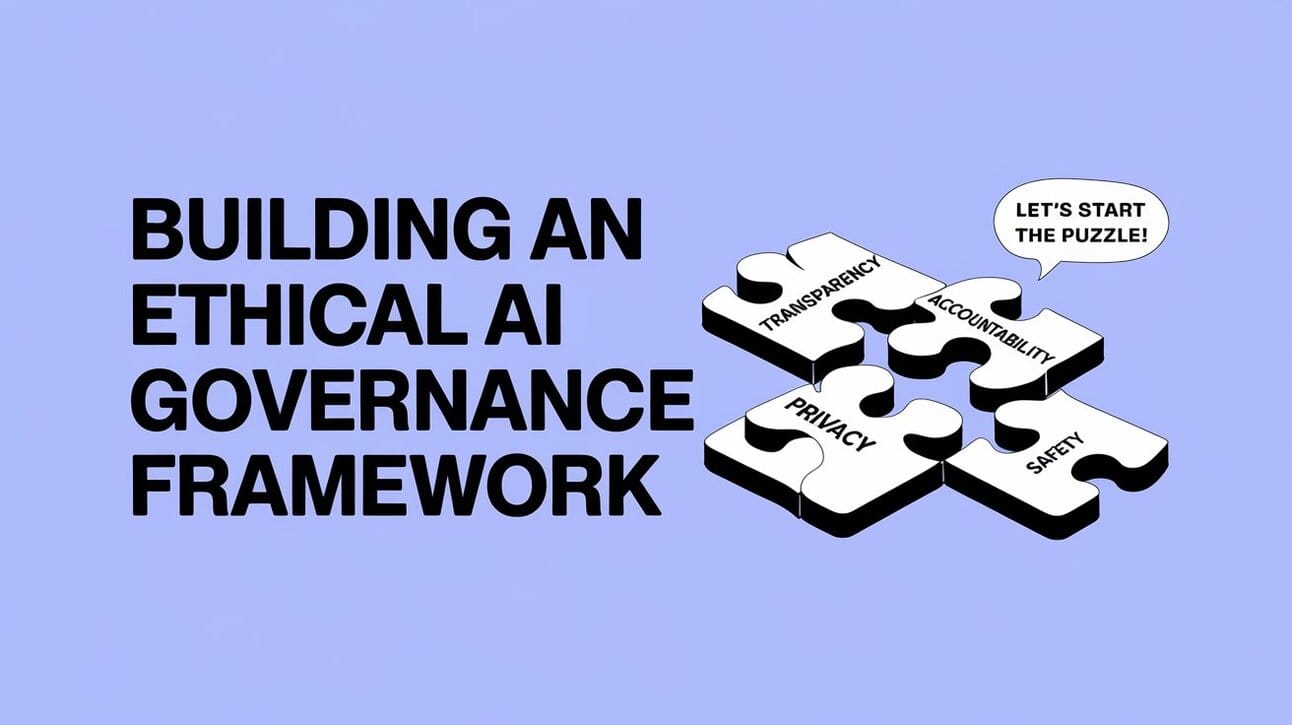Welcome to the Property AI Tools Newsletter!
👇 Here’s the latest news of the week:
LATEST TECH NEWS
Linkedin is training their AI model on your data
Past data cannot be removed but you can (double) opt out for future training data.
Denmark Launches AI Framework aligned with EU regulation
The framework is backed by some of the biggest Banks in Denmark and offers a route to standardized regulatory compliance.
NEW TOOLS
⭐ AI Rule Book
An expert compliance AI assistant to help you navigate the EU AI Act with ease
🛠 Property Pulse AI
Boost your sales with the revolutionary platform that leverages AI to identify and qualify seller leads before they even hit the market.
Today I’ll be exploring:
The 6 key components of an effective AI governance framework
Navigating the EU AI Act
The importance of aligning with global standards
Without clear ethical guidelines, unchecked AI usage can lead to bias, privacy issues, and regulatory concerns. For real estate professionals, establishing an effective AI governance framework is essential to ensuring trust, compliance, and fairness across the board. By conforming to ethical standards, the industry can balance innovation with responsibility, ultimately delivering better client experiences while maintaining accountability. Explore how navigating EU AI Act compliance for real estate professionals can help shape these frameworks in practice.
Understanding AI Governance in Real Estate
As artificial intelligence continues to influence real estate, managing its use responsibly becomes crucial. AI governance ensures ethical decision-making, compliance, and transparency while maintaining the integrity of AI systems within the property sector. A structured framework for AI governance helps real estate professionals mitigate risks, enhance trust, and support innovation without compromising ethics.
What is an AI Governance Framework?
An AI governance framework is a structured approach to managing, monitoring, and regulating the use of AI systems. It provides guidelines for ethical practices, data privacy, decision accountability, and compliance with laws. In real estate, this framework is essential for balancing efficiency with fairness when utilising AI for tasks such as accurate property valuations, limiting bias in tenant screening , or predicting future market trends.
Why is this important? Without a clear framework, organisations risk legal challenges, reputational damage, and loss of client trust. A responsible framework also ensures AI tools align with the values and regulatory standards of the real estate industry.
Key Components of an AI Governance Framework
To build an effective AI governance framework, you must address the following critical areas. Here's what industry leaders should include:
Ethical Guidelines
Clear principles for fairness, accountability, and transparency to ensure AI decisions avoid discrimination or bias.Data Security and Privacy
AI systems (tools) must comply with data protection laws, ensuring sensitive client and market data is handled securely.Regulatory Compliance
Adherence to national and international laws (e.g., GDPR and EU AI Act in Europe or similar statutes elsewhere) protects organisations from legal pitfalls.Auditability and Transparency
AI models should be explainable, with an audit trail back to data sources. Stakeholders need to understand how decisions are made by the AI system, ensuring accountability.Risk Management
Identifying risks, from biased algorithms to cybersecurity threats, is integral to maintaining operational continuity.Stakeholder Involvement
Collaboration between technologists, real estate professionals, and policymakers ensures the framework remains balanced and practical.
By addressing these elements, organisations can harness AI’s capabilities while maintaining trust and compliance. To dive deeper into how AI tools empower property professionals, consider checking out our article on machine learning demystified: a property pro’s guide to AI’s superpowers.
When implemented effectively, an AI governance framework becomes the backbone of responsible AI adoption in real estate. It creates a controlled environment for innovation while protecting stakeholders from potential risks.
The EU AI Act is at the forefront of regulating artificial intelligence use across industries, including real estate. It categorises AI systems based on risk levels including minimal, limited, high, and unacceptable. Real estate AI tools, such as tenant screening algorithms and property valuation models, may fall into high-risk categories due to their impact on individual rights and human decision making.
Professionals must ensure these tools meet strict requirements for transparency, documentation, and human oversight. For example, tenant screening must be free from bias, and valuation models should provide clear, explainable results. Ignorance of these rules could lead to significant financial penalties or reputational harm. To better understand these implications and devise effective strategies, read more about navigating EU AI Act compliance for real estate professionals.
Aligning with Global Standards
While the EU AI Act sets the tone for regulation in Europe, global standards are no less important. Countries like the US, Australia, and Canada are crafting their regulations, often influenced by the EU’s robust structures. For multinational real estate firms, aligning with these diverse standards ensures smooth operations across borders.
A key part of this process is staying informed. Whether it’s understanding transparency policies or integrating ethical safeguards, businesses need a proactive approach to adjust to emerging global norms. For further insights into ensuring AI practices align with ethical and practical standards, check out LLM vs SLM: Navigating Language Models in Real Estate Tech.
Conclusion
Building an effective AI governance framework is imperative to building a future proof real estate company. It ensures ethical AI practices, compliance and trust.
By focusing on fairness, transparency, and privacy, you can navigate AI’s complexities responsibly.
My advice would be to get a head start, conduct your own compliance audit with a tool like AI Rule Book. Cover the 6 points mentioned above and identify which AI systems may be putting your organisation at risk. Once regulatory compliance becomes enforceable by law, you will already have a good understanding of your position and have a set action plan to fill any legal holes.
Ethical implementation isn’t just about following guidelines; it’s about aligning innovation with responsibility. Take the steps today to ensure your real estate business leads with integrity, setting a standard in your local market.
Signing out!




